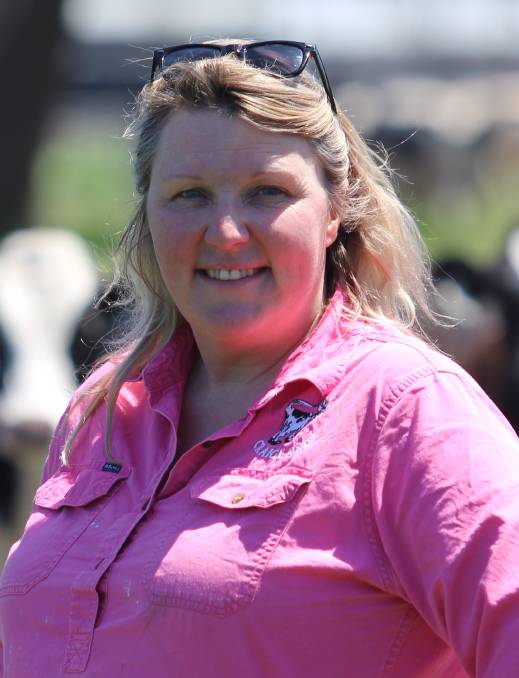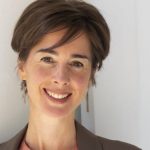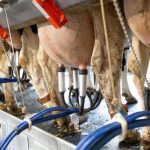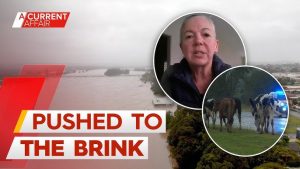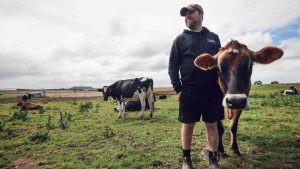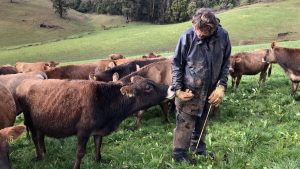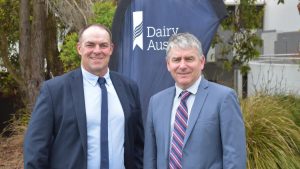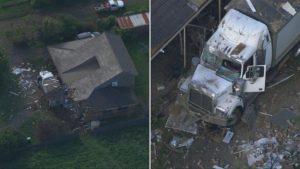
Sam manages the breeding program for the 450 cow herd, Craiglands Holsteins, that she runs in partnership with her husband Mark.
She has been actively involved in agriculture for more than 30 years and in the dairy industry for 20 years and has worked across a wide variety of agricultural industries including cropping, sheep, beef and horticulture.
“I have a background in research and extension that started when I worked for the University of Western Australia,” Sam said.
“I spent 10 years working in program delivery for the Department of Agriculture as a sheep officer located in Seymour and then Hamilton before ending up in Colac managing programs that assisted farming families to develop business plans.”
Determined to base business decisions on their own herd’s data, Sam and Mark keep meticulous records.
Sam said correct, user friendly and ongoing identification of their animals was crucial for any business that wants to improve and build on the genetic successes of their herd.
“My own business has been fortunate that past generations saw the benefit of keeping good records on a great many of the cows,” she said.
“This means that today, we are able to trace lines of cows in our herd back many decades, which came in handy when we started to register our herd.”
Sam believes having effective animal identification means that dairy farmers are able to take full advantage of services such as herd testing, custom mating programs and also genetic testing.
“These are important because they make a difference to our bottom line,” she said.
“They all can play a significant role in assisting the business to be more profitable, more sustainable and more successful in the long term.
“Dairy farmers all want the same thing; good cows that milk well and stick around in the herd for a long time.
“But how do you actually know who is doing what, if you don’t measure? How will you get another “herd favourite” if you don’t know what it is that makes her who she is? You need to collect data and use it.”
As a board member, Sam’s vision is to play an active role in breaking down some of the barriers that prevent farmers from getting involved and utilising the services that are available, such as herd testing and particularly, genetic testing.
Sam and Mark regularly participate in a number of industry projects including Ginfo, ImProving Herds and MIRforProfit.
“I would like to be seen as an advocate for things like DataVat, Ginfo, and the Good Bulls Guide,” she said.
“These are all things that I personally have been involved in and have incorporated the learnings into my own business and we are seeing some real successes from doing this.
“‘I want to encourage people that are sitting on the fence to give this a go and I want to be part of a bigger team that can help them realise the genetic gains within their own herds.”
Sam was elected at DataGene’s annual general meeting on November 19, when Genetics Australia CEO, Anthony Shelly and Murray Valley, NSW beef breeder, Lucinda Corrigan were also re-elected to the board.
Sam replaces Craig Lister of Calister Holsteins, Calivil Victoria, who had completed his term and chose not to nominate for another.
DataGene chair, Ross Joblin welcomed Sam to the board and thanked Craig for his contribution to DataGene.
“Craig’s insights into the needs of dairy farmers have helped shape DataGene’s direction over the past four years and into the future,” he said.
DataGene is an initiative of Dairy Australia and the herd improvement industry.
